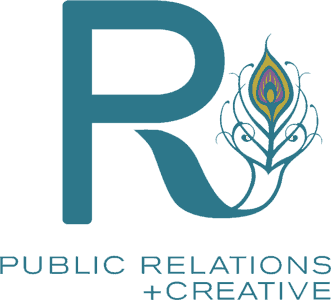R Public Relations Firm
Building Successful Campaigns for Maximum PR Success
Mary owns a B2B fashion brand and has struggled to build brand awareness in the highly competitive fashion industry. She researched possible solutions and found public relations (PR) highly recommended by top marketers. Next, she set out to build a successful PR campaign to increase brand awareness, generate leads, and secure media coverage in reputable publications.
However, like many B2B companies, she struggled with creating and executing effective PR strategies that deliver results. She discovered that effective campaign PR was more than publishing press releases; she had to identify target audience pain points, create compelling stories, pitch to journalists to get media coverage, implement strategic content distribution, and track campaign performance.
Trying to make sense of all these moving parts was overwhelming, leaving her confused about what to prioritize and how to start.
Do you relate to Mary's challenge? Are you looking to implement a PR campaign for business growth but are unsure how to get the best results? This article covers all you need to create and execute a successful campaign for maximum PR success.
Defining a Successful Public Relations Campaign
A successful PR campaign has different definitions based on your business goals and expectations. For example, using Mary's business illustration, a successful campaign will deliver a compelling message that helps to build a connection with the target audience, which improves brand awareness. But most importantly, it must meet that campaign's set key performance indicators (KPI).
How Do You Make a PR Campaign Successful?
If Mary reaches out to us at RPR Firm to help her build a successful PR campaign, here are some steps we will follow.
1. Identify the Business Needs

To create a successful campaign, you must first identify the business need prompting it—identifying "why" will help you create a SMART goal, key performance metrics to track, your distribution channels, and whom it will target.
2. Segment the Target Audience

In most cases, your business has different customer segments in its target audience population. Each segment has specific challenges and messaging that will work for a campaign. You must identify the segment you want to target, their pain points, and how solving them helps achieve a bigger marketing goal. This part is often the secret to creating an effective PR campaign strategy. The information you gather from this process will help you create personalized messaging and get better results than sending out a generic campaign to everyone.
3. Create a Compelling Message Tailored to the Target Segment
When creating a campaign, it must speak directly to your target. Effective PR campaign messaging will use the audience's language and how they describe their challenge to paint a picture of the transformation they can achieve with your product. You can create a compelling message using the storytelling framework that walks your customers through a journey from point A to B. It should capture the target audience's pain points, challenges, and goals. As well as, clearly explain how your product can help them overcome them.
4. Develop a PR Campaign Distribution Strategy
Choosing the right distribution channels helps you to reach a wider audience with impactful performance. You should create a strategy that covers content types, distribution frequency, methods, and channels that are relevant to your audience. This will help create an organized approach. You will also have real-time data from each channel to refine your strategy.
5. Track Results and Refine PR Activities

You can track campaign performance in real-time thanks to data-driven PR tools. Like Google Analytics, Hotjar, Mention, Google Alerts, and social media analytics. Tracking performance will allow you to refine key strategy elements based on audience engagement to deliver a better experience. Ultimately, your campaign will evolve and deliver better results than if it runs without tracking results.
5 Proven PR Campaign Strategies for Maximum Success
Here are some strategies you can implement to achieve PR campaign success.
- Generate leads through targeted email campaigns and social media promotion like Cheetos' Snap to Steal Snapchat campaign.
- Invest in content marketing to produce engaging content highlighting your solutions and customer success stories like Salesforce's Room $ Board company showcase.
- Develop a thought leadership program that positions your brand as an expert and influencer in the industry, like Siemens A New Space Race.
- Use PR storytelling to craft a compelling message that showcases your unique solutions while creating positive brand associations like Dove's #theselfietalk.
- Partner with influencers to create buzz-worthy campaigns like the ALS Ice Bucket Campaign that featured Bill Gates and other celebrities.
Partner With Professionals for PR Success

Merging the many moving parts in creating effective PR campaigns can be overwhelming for new businesses. However, following a structured process that involves identifying your business needs and target audience, crafting compelling messages, and tracking performance will improve your PR results.
Don't let the complexities of PR campaigns slow your business growth. With RPR Firm, you'll have a dedicated team of seasoned professionals committed to navigating these challenges and driving your business to new heights.
Contact us today, and let's start crafting a successful PR strategy tailored to your brand!








